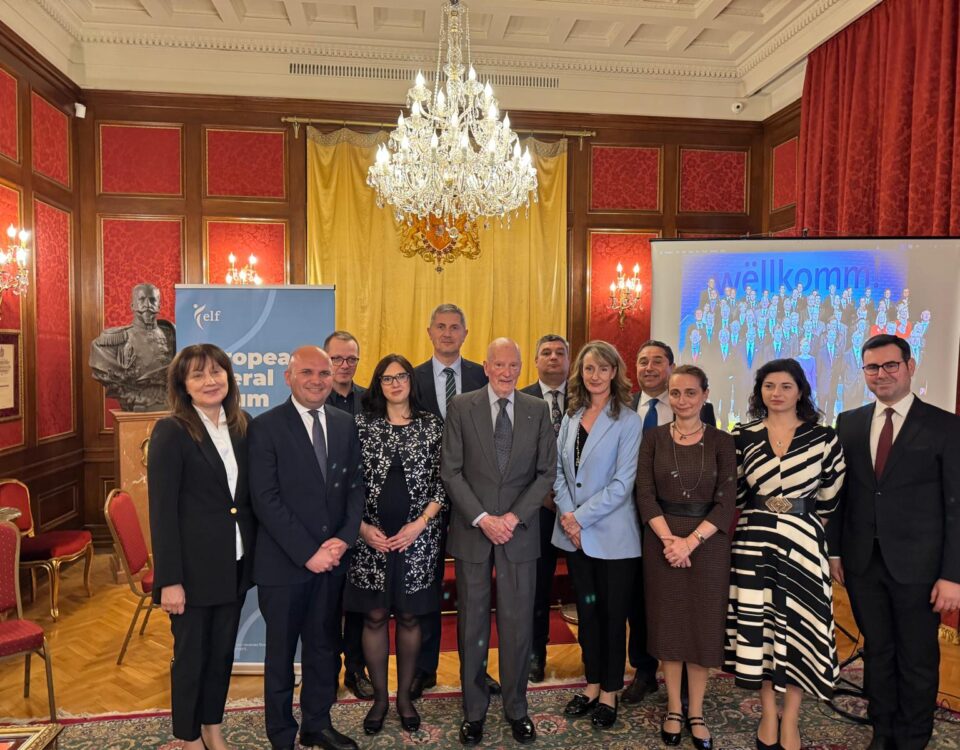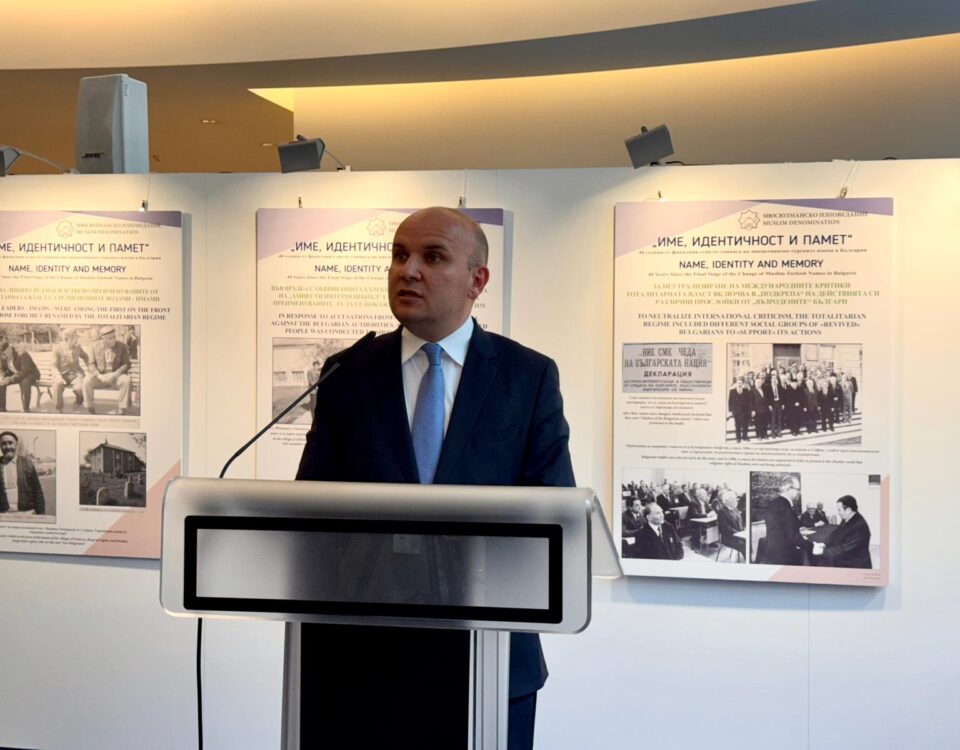
MEP Ilhan Kyuchyuk: We have lost the energy of the Bulgarian Presidency on the topic of the Western Balkans and the EU
November 11, 2020
Ilhan Kyuchyuk: In a digital world, there is no place for analog governance
November 23, 2020Confidence in the 2017 contract must be restored, if there is a misunderstanding, it can be clarified
I expected a much stronger Bulgarian handwriting from the session of the Berlin process, the MEP said in an interview with “Monitor”
Monitor: Mr. Kyuchyuk, you are the EP rapporteur for North Macedonia, how do you see the current situation and the process of the country’s accession to the EU? Is there progress in the negotiations?
Kyuchyuk: The Republic of North Macedonia has fulfilled all the conditions for starting negotiations. A few months ago, parliamentary elections were held, which all observers described as free, fair and democratic. The country has made significant progress in administrative reform and an anti-discrimination law has been passed. Important reforms in the justice system are yet to be made and the fight against corruption and organized crime continues. I assess the EC report on the progress of North Macedonia as realistic. An EP report is to be drawn up, in which all trends will be reflected.
Monitor: A meeting of EU foreign ministers is expected on November 17, where the negotiating framework must be approved, what do you expect?
Kyuchyuk: Most likely the framework will not be approved. Bulgaria has already expressed its position. How can express it, is another question. Whether it can be express at all, within a few days, is a different question.
Monitor: Are the conditions set by Bulgaria justified or should we compromise on language and minority claims?
Kyuchyuk: This is not about compromising or “sacrificing” our history or language. In this regard, it is important to make two clarifications.
The first – the analogy with the Prespa contract is not very appropriate. The agreement between North Macedonia and Greece aimed to draw a line between the existing dispute between the two countries, which is somehow easier. And that puts an end to the conversation. While our 2017 contract marks the beginning. The main word is “common” and this marks the beginning of a process that aims to show our common past, which will be the basis for our common future within the EU. Here the relationship is much more complicated and therefore our relationship should not be seen as a one-time act.
Second, the medias in North Macedonia are clearly polarized. There are the media that support the official position of Skopje and there is no negative news about Bulgaria. And on the other side are the media of the Macedonian VMRO, where the negative campaign comes from. Quite often we have been witnesses a nationalist show by both VMROs.
Monitor: Will the signing of an annex to the friendship agreement with North Macedonia, as Bulgaria insists, solve the problems between us?
Kyuchyuk: The Confidence in the 2017 contract needs to be restored. If there is a misunderstanding about some parts of the contract or greater precision is required, further explanations may be used. Including to develop a roadmap for its implementation. Such practices and opportunities exist in international relations.
Monitor: Besides Bulgaria, do you expect other countries to be against the negotiating framework, which will be considered at the 17th?
Kyuchyuk: So far I do not know of any other countries. One more thing should be known, the imposition of a veto on North Macedonia is a veto on Albania, because both countries are under the same Council conclusion.
Monitor: At the Berlin Summit, German Chancellor Angela Merkel addressed Borissov and Zaev with the words: “You have to reach consensus for the good of the region,” how do you read this – as an attempt to help or an attempt to pressure from outside?
Kyuchyuk: The German Presidency has made great efforts to hold the first intergovernmental conference. Ms. Merkel’s personal commitment was evident throughout. The relations between Bulgaria and North Macedonia should be an example for the whole region. Personally, I expected a much stronger Bulgarian handwriting from the session of the Berlin Process.
Monitor: In fact, has Bulgaria managed to convince the other EU countries that our concerns and demands towards North Macedonia are justified?
Kyuchyuk: To whom did we manage to explain our position? Did the Bulgarian government spread its position in writing? Did the Bulgarian diplomacy do it? How many foreign language media wrote about the position? Or we talk to ourselves through our TV.
Monitor: A National Conference of the Youth MRF is forthcoming, which for the first time will be entirely online. How exactly will this happen, given that there are over 300 delegates? And is this a preparation for the National conference of MRF?
Kyuchyuk: Despite global closure, we remain open to the world because empathy and responsibility are our DNA. Because we have proved that we are not only part of modern Bulgarian society, we actively participate in its construction. Togetherness as a notion of human closeness is now being transformed into contact with electronic devices.
Keeping up with the times – modern and innovative, is not enough. We are now committed to looking in the future. Moreover, to bring the future today. To set the most ambitious goals and the highest standards in order to be one step ahead of others. This is such a valuable step that makes the difference. We will convey this message through social media. Yes, there are 357 delegates, but there will be thousands together.
Monitor: Have you already set a date for the National Conference of the MRF?
Kyuchyuk: The decision of the central leadership was for December 12, but as you can see we live in a very dynamic world.
Monitor: The MRF has always been in favor of machine voting, now the CEC is about to announce a public tender for supplying of 9,600 devices, do you think that the commission will be able to cope with this task, given that there are about 4-5 months until the next elections?
Kyuchyuk: Unfortunately, the state has abdicated its obligations to organize the elections and transferred all responsibility to the CEC, an institution which have had oversight functions for compliance with election legislation so far. The government escaped its obligations to prepare and hold fair elections, and insured itself against failure. We are ready to inform our European partners about what is happening, as well as all the institutions of the European Commission, as well as all the structures of the Council of Europe.
Тази публикация е достъпна и на следните езици: Bulgarian




